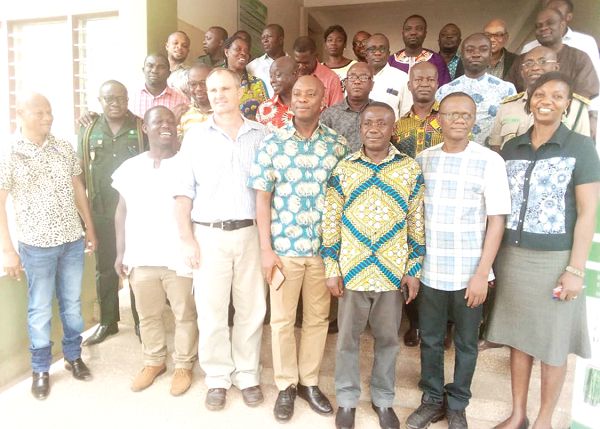
2 Bodies begin project on timber loss
The Food and Agriculture Organisation (FAO) and the Forestry Commission have commenced a 12-month research project to establish how much Ghana loses in the timber plantation value chain.
Experts say although the country loses huge sums of money in the felling and processing of timber, there is no evidence of how much the country actually loses annually.
Aim
It also seeks to address some inefficiencies in the permit issuance system and develop a blueprint that will streamline and regulate timber harvesting in Ghana.
Funding
The FAO is injecting $137,000 in the project per the agreement signed between the two last year.
The Director of Operations in charge of Plantations of the Forest Services Division of the Commission, Mr Hugh C. A. Brown, told the Daily Graphic at the launch in Akyawkrom near Kumasi, that they were collecting data on "standing trees" to examine how the trees shrank as they developed.
He said once the metrics of standards were established, it then became easier to ascertain the exact percentage of timber Ghana lost per each harvest.
Mr Brown noted that the main challenge had been how to look at the traceability of each custody of plantation.
Background
Ghana’s natural forest estates have been under pressure from over-exploitation of timber and fuel wood, agricultural expansion, mining and infrastructural development to meet the burgeoning demands of an ever-increasing human population.
Partners
The government and its collaborating institutions and partners are implementing several policies, programmes and strategies to restore the forest resource base and regulate timber harvesting.
One of these programmes was the National Forest Plantation Development Programme (NFPDP) (2002 – 2016) aimed at restoring Ghana's lost vegetation through forest plantation development under various tree planting modules.
Following that, the Ghana government signed an agreement with the European Union to implement a Chain of Custody system and procedures to ensure that only verified legal timber is exported from Ghana and available on the local market and how much it loses either through illegal or unverified means.
